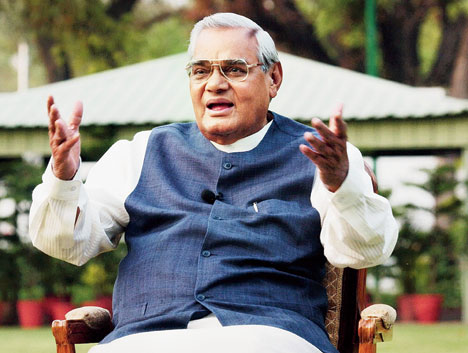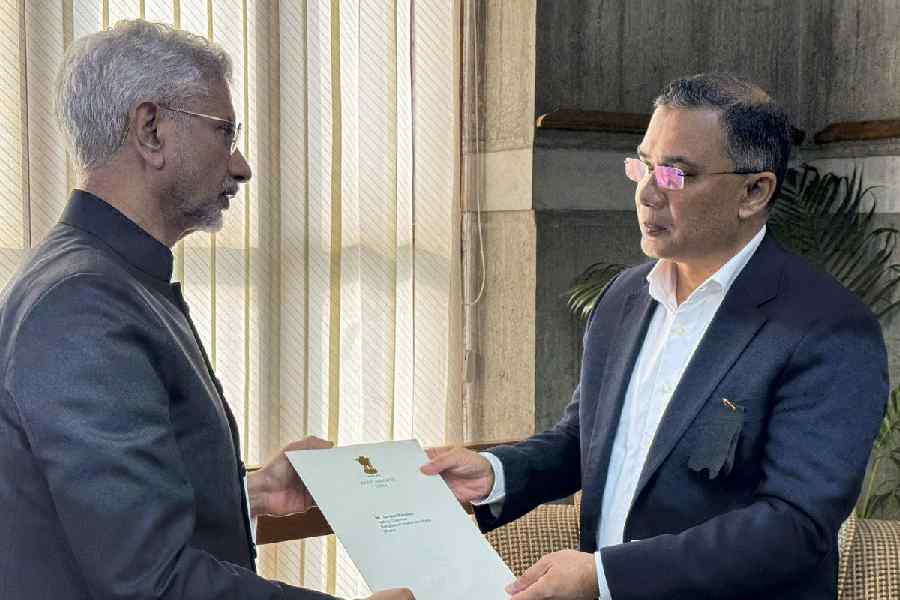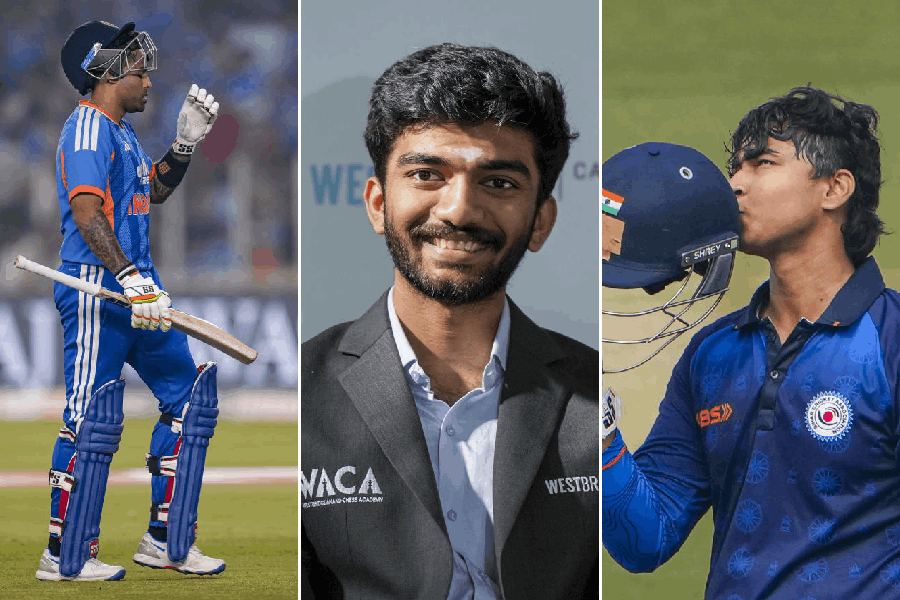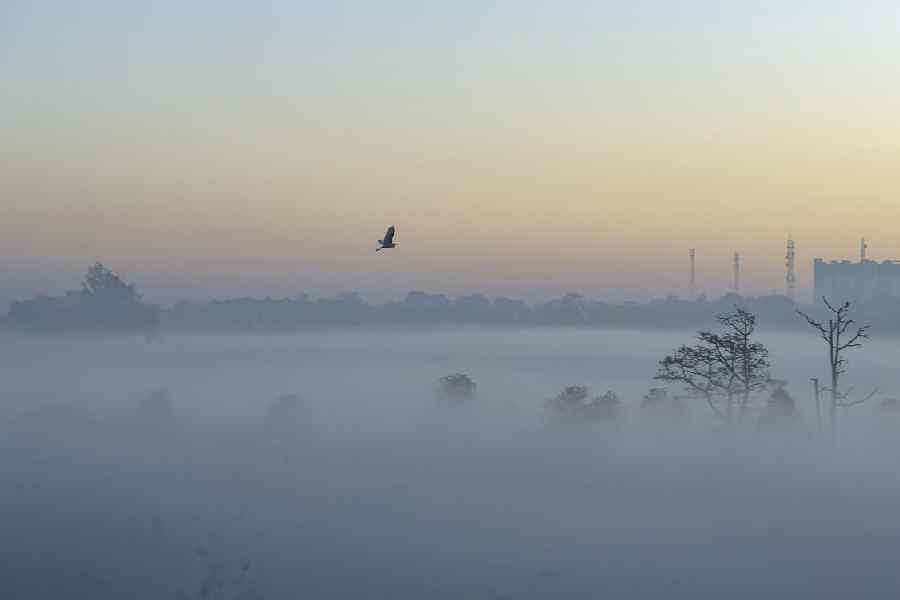
New Delhi: Atal Bihari Vajpayee - one of India's tallest leaders in the post-Independence era, three-time Prime Minister, and the only non-Congress leader yet to complete a full term in office - passed away at 5.05pm on Thursday. He was 93.
Vajpayee had become a political recluse after the unexpected defeat of the BJP and the coalition it led in the general election of 2004. He formally retired from politics in 2009 when he chose not to contest elections that year because of failing health.
For the last several years, he disappeared from public life even though he was conferred the Bharat Ratna in 2014 and the Narendra Modi government chose to celebrate his birthday, December 25, as "Good Governance Day" and name a couple of government schemes after him.
Yet, it would not be an exaggeration to say that when the news of the former Prime Minister's death was finally announced this evening, millions of Indians - including those who do not and never have subscribed to the ideology of the RSS or the BJP - felt a genuine sense of loss and grief. Only true mass leaders with that indefinable quality called charisma, unaided by the modern-day publicity machine of 24/7 television and relentless social media chatter, can evoke such emotions among vast swathes of people who never met them.
Vajpayee, possibly, was the last such mass leader on a national scale: not a manufactured icon, not a "rock star" politician, not a hyped-up celebrity aided by an adulatory media, but a genuine colossus who uniquely combined affability with gravitas.
Long before he rose to the pinnacle of power, Vajpayee had made his mark as an orator - mesmerising Parliament as well as rallies with his poetic flourishes interspersed with eloquent pauses that became his indelible trademark.
As a young Lok Sabha MP, he is said to have impressed the first Prime Minister, Jawaharlal Nehru. Vajpayee, in turn, became an admirer of Nehru despite being a lifelong member of the RSS which harbours a deep antipathy towards all things Nehruvian.
His first stint as Prime Minister in May 1996 lasted just 13 days. His second term in 1998 lasted little over a year, and he completed his third term - albeit voluntarily cutting it short by a few months by going in for early elections in 2004. But in his relatively short stint at the helm, Vajpayee made history by leading India's first coalition government of over 20 parties to complete a full term and also being the only non-Congress leader to achieve that feat.
The BJP today is focusing on the "development" that the Vajpayee government unleashed, especially in building a network of national highways; the victory in the Kargil war, and the Pokhran II underground nuclear blasts. More than these achievements, it is perhaps Vajpayee's sincere efforts to reach out to Pakistan through his famous bus ride to Lahore and attempting peace with the neighbour even after Kargil that transformed him from leader to statesman.
But more than his oratorical talent or his natural flair for politics or his leadership skills, Vajpayee's most remarkable quality was the ability to straddle contradictions. That made him an enduring enigma in Indian politics, with no one quite sure what Vajpayee exactly stood for and his opponents frequently resorting to the old cliché of "right man in the wrong party" while describing him; a description he rather liked even as he remained a loyal soldier of the party and organisation to which he belonged.
Myths about Vajpayee gained ground long before he retired from politics. It is said he was a member of the student wing of the undivided Communist Party of India, or at least dabbled in Left politics when he was studying in Gwalior. But the records show that he joined the RSS as a 15-year-old in 1939, and was considered promising enough to attend the Officers Training Camp of the RSS in the early 1940s, and became a full-time worker in 1947.
For many years, his admirers spoke of his participation in the freedom struggle and incarceration during the Quit India movement. But it was discovered in the 1990s that while he did take part in an attempt to hoist the Tricolour at his ancestral village of Bateswar in Uttar Pradesh in 1942 and was arrested as a result, he gave a written undertaking to the British authorities that he would not participate in any such seditious activity in the future to secure his release. When the story came out, Vajpayee - then Prime Minister - admitted that it was true. His popularity was by then so secure that the admission of youthful folly did not make much of a dent to his reputation.
It was this ability of Vajpayee to shake off attacks with a smile or a shrug, to exude a certain warmth towards friend and adversary alike and yet remain aloof and stay above the fray that helped him become a unique political personality.
His personality transcended his politics, or at least softened the edges of his ideological convictions in the eyes of his political adversaries. That is why, even though Vajpayee reaped the fruits of the divisive politics unleashed by the RSS and the BJP through the Ramjanmabhoomi movement and the eventual demolition of the Babri Masjid, that crime against the Constitution never quite stained him.
Vajpayee could make polarising speeches himself -such as the one in Lucknow supporting the removal of the Babri Masjid on the eve of its demolition or the one in Goa after the Gujarat riots of 2002. But in an oblique reprimand to Narendra Modi's handling of the riots, Vajpayee also spoke of " rajdharma". After the 2004 defeat, he admitted to a television reporter that not dismissing Modi as chief minister in 2002 had been a mistake.
While he gave occasional glimpses of his RSS background and once famously said "the Sangh is my soul", Vajpayee also sought to exude a persona that was the very opposite of a hardline ideologue.
His love for food and easy acceptance of those who ate meats and drank beverages that would be considered anti-national today; his ability to get along with people from diverse backgrounds and beliefs; his laidback and light-handed approach at governance that gave a lot of autonomy to ministerial colleagues and civil servants; and his wit and humour and complete lack of insecurity all contributed in making Vajpayee an endearing leader to those who knew him from close and saw him from afar.
The contradictions underlying his personality and politics did lead to charges of hypocrisy, with former BJP ideologue K.N. Govindacharya famously calling Vajpayee the " mukhota", the mask behind which the BJP-RSS would pursue its ideological objectives.
Seizing upon the " mukhota" epithet, others have pointed out that it was the force of circumstances that forced Vajpayee to become a "consensus builder". Since the BJP did not have the numbers to form a government of its own or push its core agenda, Vajpayee had to use his personal charm to bring on board a host of allies and run a coalition government.
The truth, perhaps, lies somewhere in between. Circumstances did play a role in making Vajpayee the leader he became. But Vajpayee was in public life for far too long to pretend to be what he was not. His mask was not like the headgear that you put on and off to suit the occasion. It was more like the painted face of a Kathakali dancer who imbibes the persona of the character he is portraying to the point that the mask and the man become inextricably fused.
That is why in today's hype-driven and bitterly polarising discourse, the complexly layered personality of Atal Bihari Vajpayee, his words and his pauses, will be missed so much more.
THAT DAY

.jpg)
A month after the Gujarat riots, Prime Minister Atal Bihari Vajpayee asked chief minister Narendra Modi to follow rajdharma, an advice that briefly wiped the smile off Modi’s face. At a news conference on April 4, 2002, in Ahmedabad, a reporter asked Vajpayee: “We heard your message for the officials. Do you also have a message for the chief minister during your visit?”
With a smiling Modi seated next to him, Vajpayee replied: “For the chief minister, I have only one message, that he should follow rajdharma. Rajdharma, the word is quite meaningful (sarthak). That is what I am following, trying to follow. For a ruler, there can be no differentiation among the subjects. Not on the basis of birth, not caste, not religion.”
His smile fading, Modi turned to Vajpayee and muttered: “That is what we are following, Sahab.”
Vajpayee said: “I have faith that Narendrabhai is doing just that.”
Modi was smiling again.











